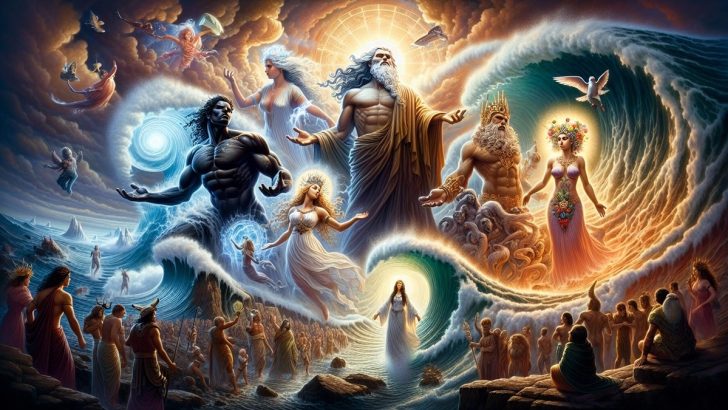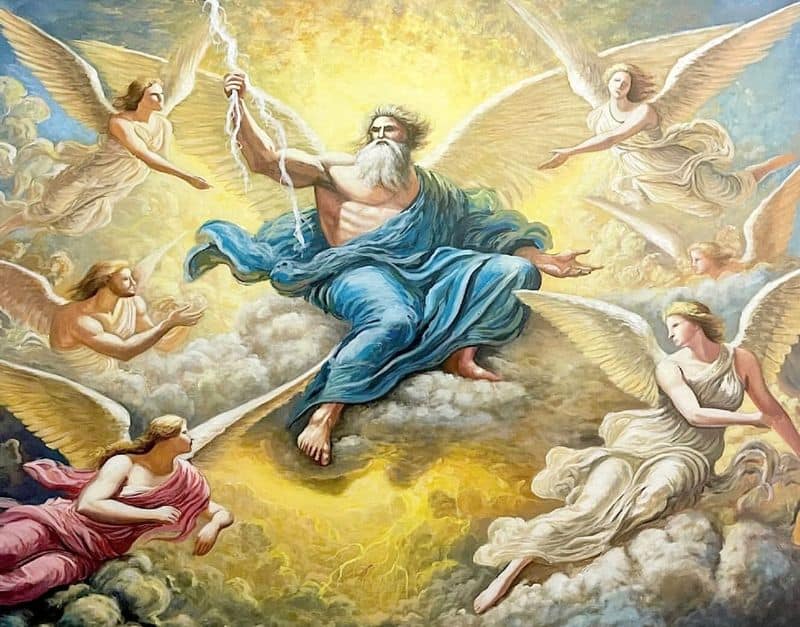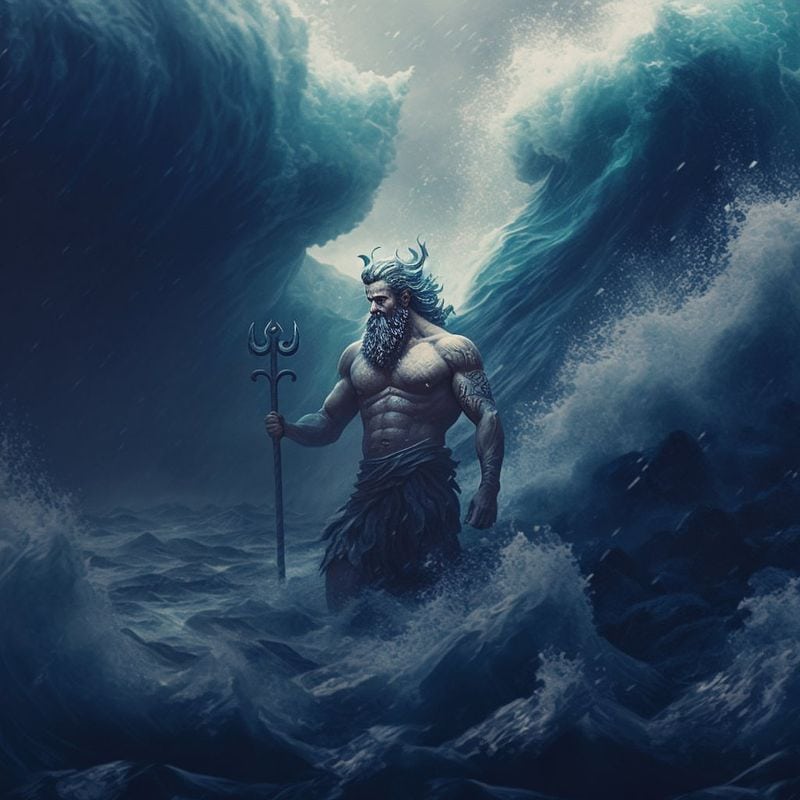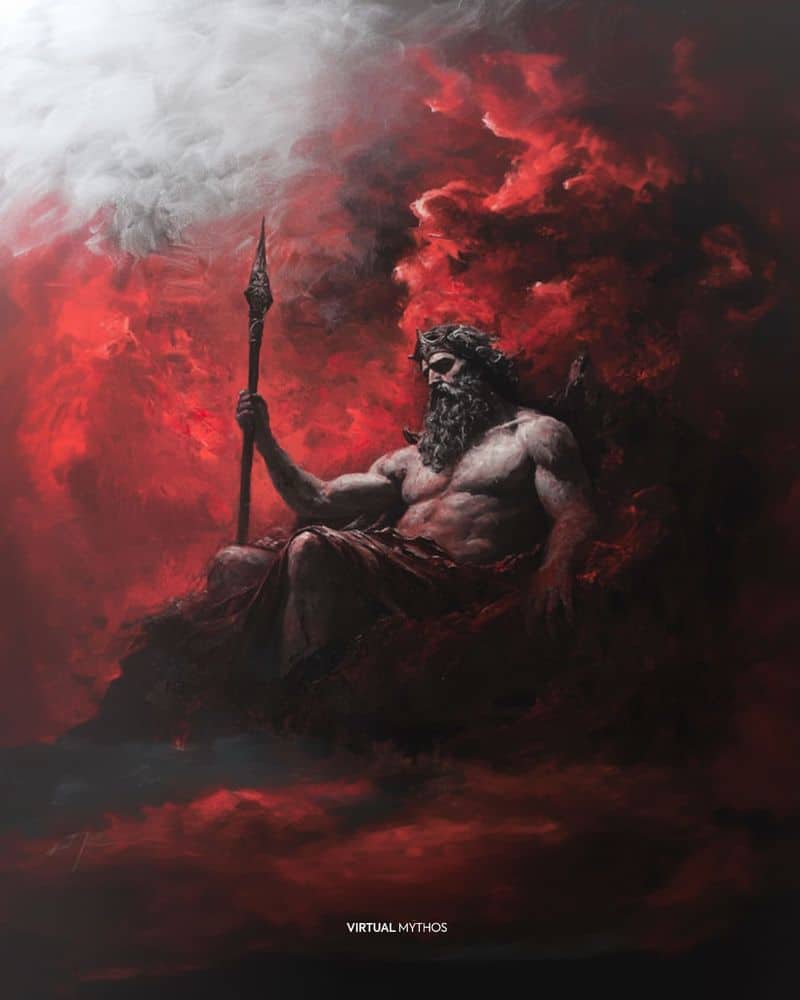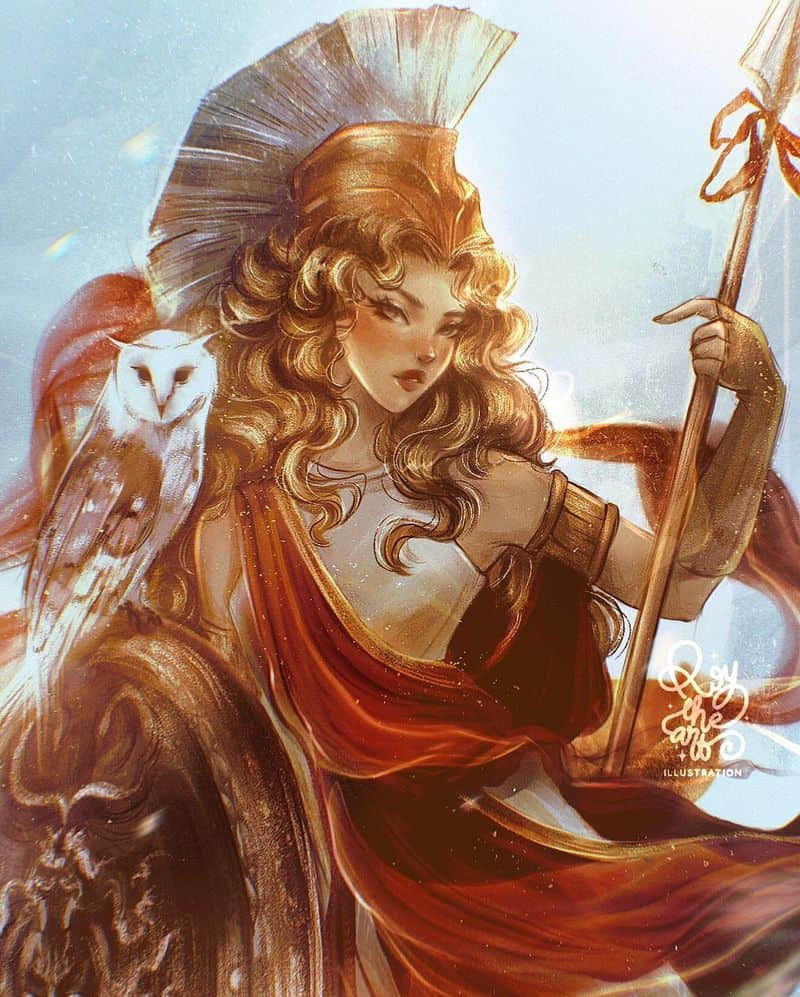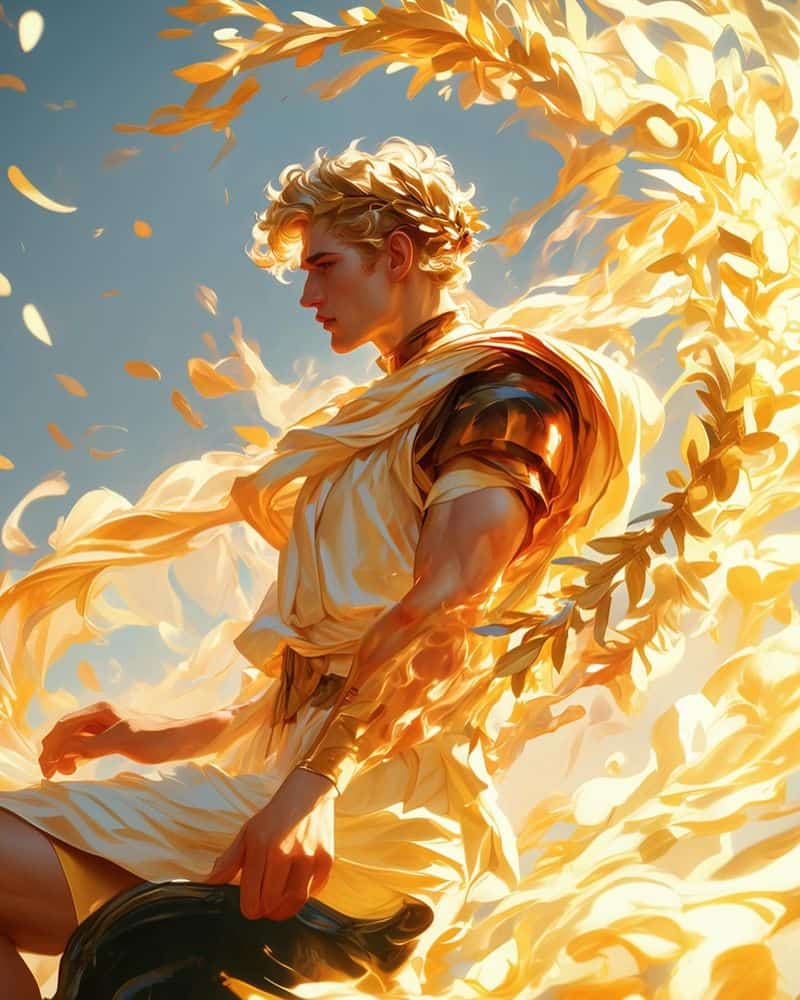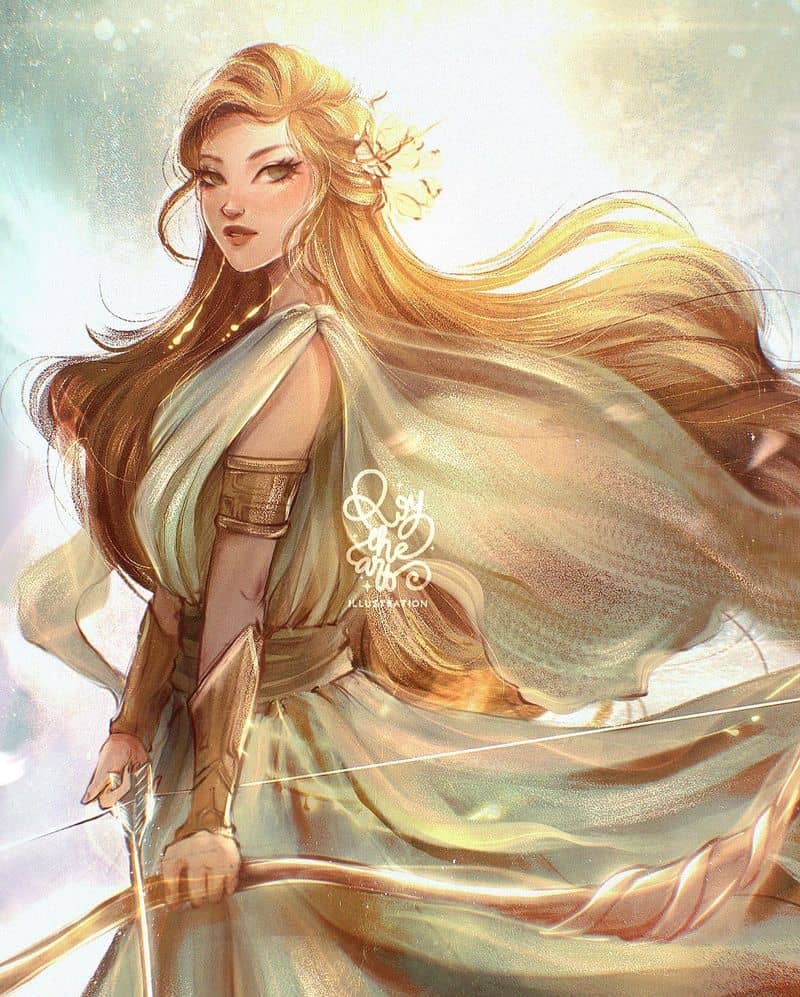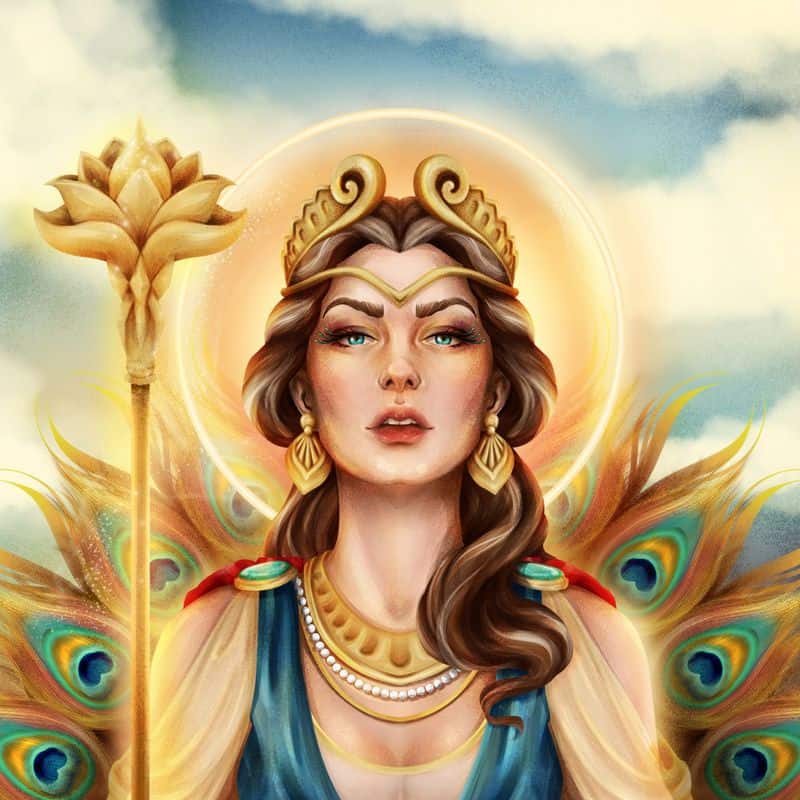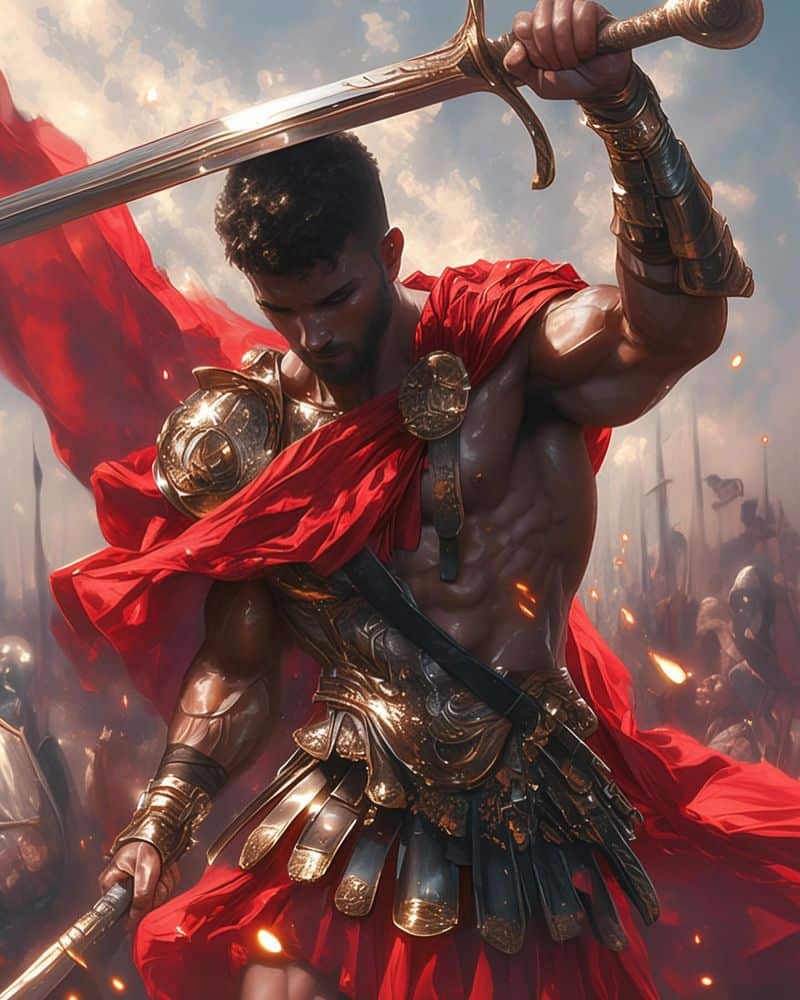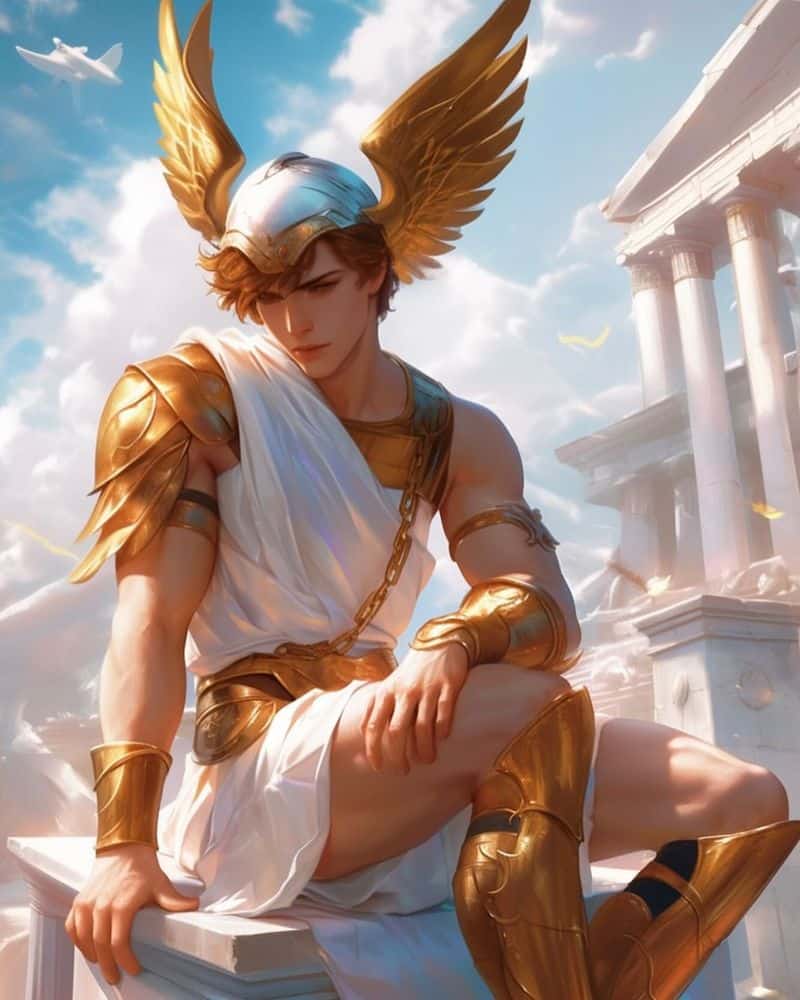Greek mythology brims with powerful deities who shaped the ancient world through their incredible abilities and complex personalities.
These gods controlled everything from the weather and oceans to life and death itself.
Their stories have captivated people for thousands of years, teaching lessons about power, justice, and human nature while explaining natural phenomena in creative ways.
1. Zeus: The Thunderous Sky King
Ruling from Mount Olympus with his mighty thunderbolt, Zeus reigned supreme as king of all gods. After leading the Olympians to victory in the ten-year war against the Titans, he divided the world with his brothers, claiming the sky and heavens for himself.
Zeus’s power wasn’t limited to controlling lightning and storms—he maintained cosmic order and dispensed divine justice. His numerous affairs with goddesses and mortal women produced many heroic offspring, including Athena, Apollo, and Heracles.
When angered, Zeus could be terrifyingly destructive, but he also showed wisdom in governing both gods and humans.
2. Poseidon: Master of the Seas
Crowned with seaweed and wielding his legendary trident, Poseidon commanded the vast oceans with a temperament as unpredictable as the seas themselves. Sailors would offer sacrifices before voyages, hoping to calm his notorious mood swings that could whip peaceful waters into deadly storms within moments.
Beyond the waters, Poseidon earned the title “Earth-Shaker” for his ability to cause devastating earthquakes with a single strike of his trident. He created horses from sea foam and gifted them to humanity.
Second only to Zeus in power, this hot-headed deity demanded respect from all who ventured into his watery domain.
3. Hades: Ruler of the Underworld
Unlike his Olympian siblings, Hades rarely left his shadowy kingdom beneath the earth where he governed the souls of the dead. With his three-headed guard dog Cerberus at his side, he ensured no spirit escaped and no living visitor overstayed their welcome.
Often misunderstood as evil, Hades was actually fair and unchanging—qualities rare among the gods. He controlled immense riches, as all precious metals and gems lay within his underground realm.
While feared by mortals who avoided speaking his name (preferring to call him “the Rich One” instead), Hades maintained cosmic balance by ensuring proper transition between life and death.
4. Athena: The Strategic War Goddess
Born fully grown and armored from Zeus’s forehead, Athena emerged as the embodiment of divine wisdom and strategic warfare. Unlike her bloodthirsty brother Ares, she favored clever battle plans over mindless violence, making her the preferred deity for generals seeking victory.
Athens, Greece’s most influential city-state, claimed her as their patron after she gifted them the olive tree—a symbol of peace and prosperity. Her sacred animal, the owl, represented her penetrating insight and ability to see truth in darkness.
Warriors sought her blessing, but so did craftspeople, as Athena excelled in practical arts like weaving and metalwork.
5. Apollo: The Radiant Sun God
Sunshine personified, Apollo drove his golden chariot across the sky each day, bringing light to the world. Music flowed from his divine lyre, so beautiful it could heal the sick and calm the most troubled hearts.
The Oracle at Delphi spoke his prophecies, making Apollo the god who revealed future events to those brave enough to seek answers. His twin arrows could bring either gentle death or terrible plague depending on his mood.
A champion of reason and moderation, Apollo represented the perfect balance between physical beauty and intellectual brilliance—the Greek ideal of excellence that inspired countless artists and philosophers.
6. Artemis: The Untamed Huntress
Silver moonlight guided Artemis as she raced through forests with her band of nymphs, bow in hand and hunting dogs at her heels. Fiercely independent, she requested eternal virginity from Zeus and punished anyone who threatened her sacred wilderness or the creatures under her protection.
Young women prayed to Artemis during childbirth, as she paradoxically served as midwife despite her wild nature. Her arrows brought quick, merciful death to women, contrasting with her twin brother Apollo who performed the same service for men.
Proud and uncompromising, Artemis embodied the untamed parts of nature that resist civilization’s control.
7. Hera: The Vengeful Queen
As Zeus’s wife and queen of Olympus, Hera commanded respect through her regal presence and fierce determination. Marriage and childbirth fell under her domain, though her own marriage to Zeus was famously troubled by his countless infidelities.
Her sacred animals—the cow, lion, and especially the peacock—symbolized her pride and watchfulness. When crossed, Hera’s vengeance knew no bounds; she tormented Zeus’s lovers and their children with creative punishments that lasted generations.
Despite her jealous reputation, Hera represented female power in its most formidable form, protecting women during their most vulnerable moments and upholding sacred family bonds.
8. Ares: The Bloodthirsty War God
Battlefields erupted with chaos when Ares arrived, his bronze armor splattered with blood and his spear thirsting for more. Unlike strategic Athena, he embodied war’s brutal, irrational aspects—the bloodlust and frenzy that overtakes soldiers in combat.
Strangely, this fearsome deity often found himself humiliated in myths. His own parents, Zeus and Hera, expressed disappointment in his mindless aggression. Even mortals occasionally outwitted him.
Yet Greeks recognized Ares’s necessary role in their world. His children—Fear, Terror, and Discord—accompanied him into battle, reminding all that war’s savage nature cannot be completely tamed by civilization.
9. Demeter: The Earth’s Nurturing Force
Golden grain fields swayed at Demeter’s touch, this goddess’s power flowing directly from the earth itself. As agriculture’s patron, she taught humans to cultivate crops, transforming nomadic tribes into settled civilizations that could flourish through farming.
When Hades abducted her beloved daughter Persephone, Demeter’s grief caused all plants to wither and die—creating the first winter. Her reunion with Persephone brought spring’s return, establishing the seasonal cycle that continues today.
Perhaps no deity affected daily human life more directly than Demeter. Without her blessing on crops, even the mightiest warriors and kings would starve.
10. Hermes: The Swift-Footed Messenger
Winged sandals carried Hermes between Mount Olympus, the mortal world, and even the underworld—the only god with unrestricted access to all three realms. Born mischievous, he stole Apollo’s cattle as an infant and crafted the first lyre to appease him, demonstrating his trademark cleverness.
Travelers prayed to him for safe journeys, while merchants sought his blessing for profitable trades. Thieves considered him their patron too, appreciating his cunning and trickery.
As psychopomp (soul guide), Hermes gently led departed spirits to the underworld, showing compassion absent in many Olympians. His caduceus staff with intertwined snakes remains a symbol of commerce and communication today.

